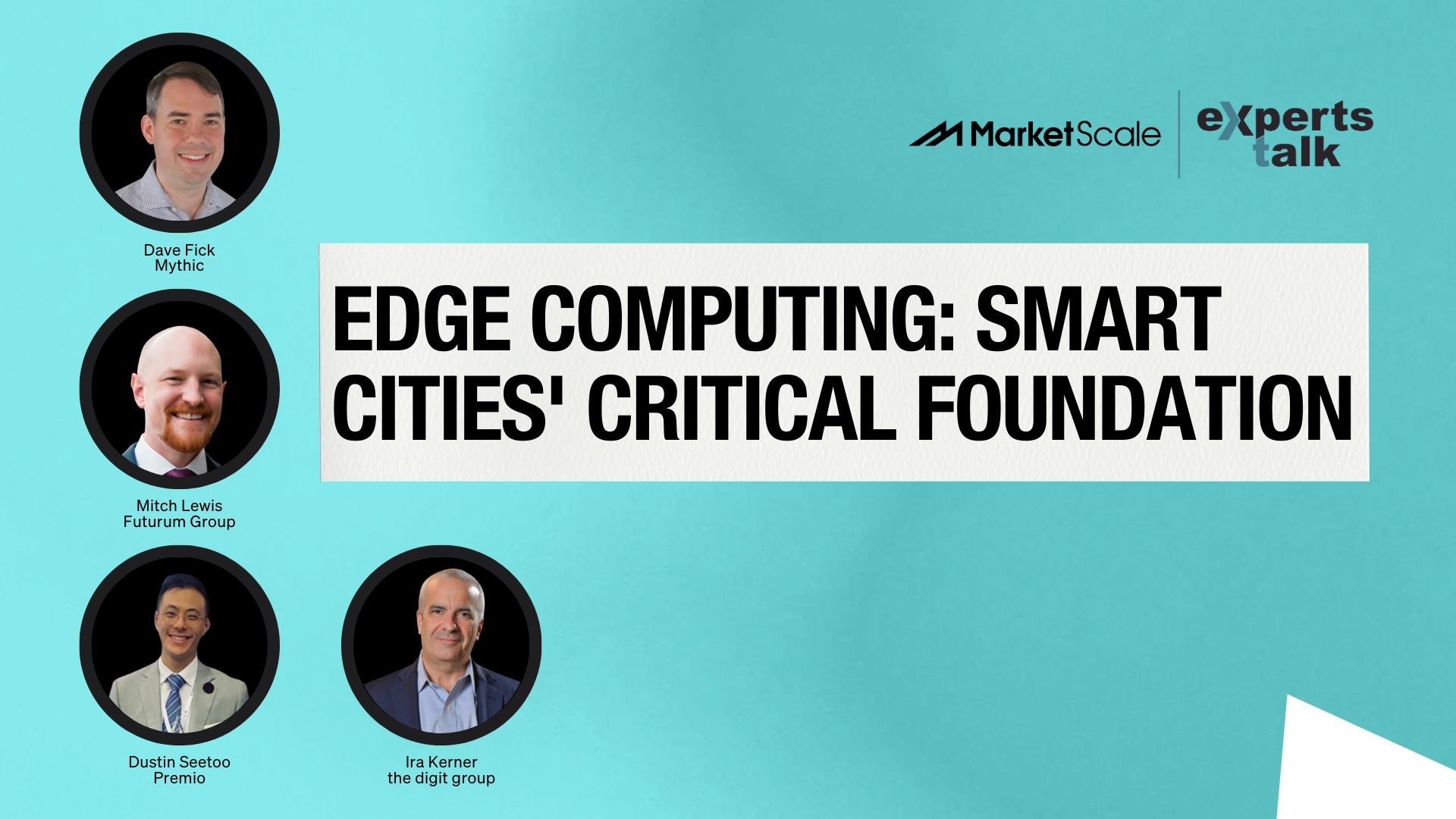As cities globally accelerate their transformation into “smart cities,” the integration of a capable computing ecosystem to complement smart city initiatives has become an important part of smart city success. How critical will edge computing be in that ecosystem, and in the facilitation of today’s and tomorrow’s smart city projects, especially with where smart city development is at today?
The recent IMD Smart City Index for 2024 gives a peak at global smart city progress, with Europe and Asia currently setting the standard for the most advanced smart cities. Cities like Zurich are staying at the forefront, with other cities like Oslo and Singapore not far behind; their projects shine a light on how far along smart cities are, and therefore how far along their computing needs are as well.
In the survey, Zurich’s citizens paint a picture of a city excelling in day-to-day convenient digital services for public transport tickets, job listings, and ID processing. When it comes to more advanced levels of health monitoring or public engagement platforms, there’s still room to improve. Regardless, all of these projects ranging from connected transportation systems to advanced public safety measures rely heavily on real-time data processing. With each IoT sensor and node producing vast amounts of data, the computational load is immense.
What role will edge computing play in enabling the next generation of smart city projects? As cities become denser and more connected, how will computing keep pace with the increasing demands for speed and reliability in data processing?
On this episode of Experts Talk, host Daniel Litwin, the Voice of B2B, breaks down these key trends & questions with a panel of leading smart city and edge computing experts. Dave Fick, Ira Kerner, Mitch Lewis, and Dustin Seetoo explore the critical role of edge computing in smart city development, assessing the technology’s current capabilities and future potential.
Key Points
- The Technical Backbone: How rugged edge computing serves as the infrastructure for reliable, real-time data processing in smart city environments.
- Integration Challenges and Solutions: Strategies for embedding edge computing into existing urban frameworks and collaborating with IoT solution providers.
- Future Trends and Investments: Insights into the readiness of cities to invest in edge computing and the anticipated technological advancements in this field.
- Comparative Analysis of Smart City Leaders: Discussing how cities like Zurich, Oslo, and Singapore are leveraging edge computing for various public services, highlighting the disparities and commonalities in their approach.
- Impact on Public Services: A detailed look at how edge computing is enhancing public-facing services in leading smart cities, with a focus on transportation, safety, and administrative efficiency.
- Challenges and Opportunities in Scalability: Examining how edge computing can address scalability issues in smart city projects, especially in high-density urban areas facing massive data influx.
- Citizen-Centric Technologies: Evaluating how edge computing supports technologies that directly impact the quality of life for citizens, such as traffic congestion data systems and public safety CCTV enhancements.
- Barriers to Technological Adoption: Analyzing the barriers faced by smart cities in implementing edge computing solutions, including technological, financial, and regulatory challenges.
About the Experts
- Dave Fick, Ph.D.: CEO and Co-Founder of Mythic, Dave Fick is an accomplished computer engineer with expertise in neural networks, software engineering, and chip design. He co-founded Mythic, where he pioneered the development of a groundbreaking analog compute technology for AI and led various technical teams, including AI Engineering and Silicon Design.
- Ira Kerner: Ira Kerner is the Real Estate Lead at the digit group and Assistant Vice President at Commonwealth Land Title Insurance Company, with extensive experience in title insurance, real estate transactions, and smart city planning. Previously, he held roles at CBRE and Ripco Real Estate, managing real estate services, lease negotiations, and transaction strategies for various clients.
- Mitch Lewis: A Research Analyst at The Futurum Group, Mitch Lewis specializes in cloud computing and data storage. With deep technical knowledge and a focus on emerging IT trends, Mitch provides valuable insights into data center solutions, storage technologies, and networking fabrics for enterprises and technology enthusiasts.
- Dustin Seetoo: Dustin Seetoo is the Director of Product Marketing at Premio Inc., specializing in industrial computing solutions such as IIoT devices, x86 embedded systems, and rugged edge computing. With expertise in hardware engineering, manufacturing, and deployment, he leads initiatives in developing reliable solutions like Embedded IoT Computers, Rugged Edge Computers, HMI Displays, and HPC Storage Servers. Dustin’s background includes navigating OEM/ODM manufacturing operations, account management, supply chain forecasting, and business development,
Article written by MarketScale.

Wanda Parisien is a computing expert who navigates the vast landscape of hardware and software. With a focus on computer technology, software development, and industry trends, Wanda delivers informative content, tutorials, and analyses to keep readers updated on the latest in the world of computing.



